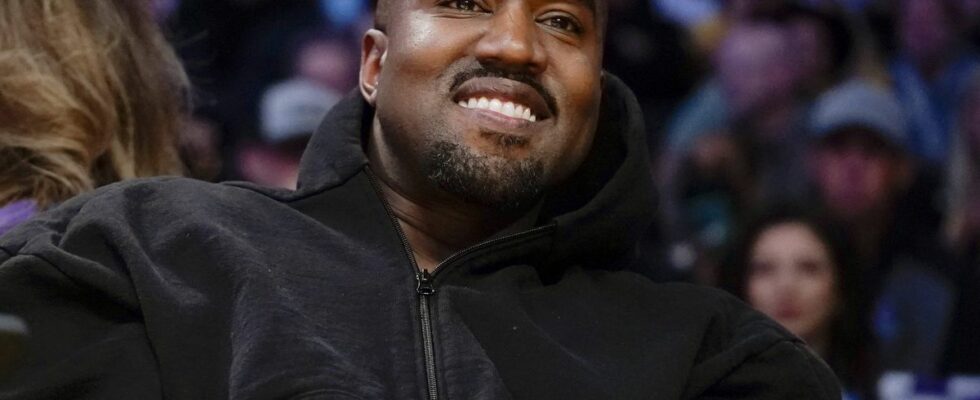“I can’t be anti-Semitic because black people are actually Jews. The statement is from last October and is signed by Kanye West. The American rapper was responding to the controversy after Adidas ended their collaboration. The slippages of the artist, in particular anti-Semitic, can no longer be counted. The latest on Thursday, when the rapper, who now calls himself Ye, launched into a tirade about sin, pornography and the devil before professing his admiration for Hitler.
And on Friday, Twitter suspended his account for “inciting violence” after he posted an image of a swastika intertwined with a Star of David. Often associated with his mental health – Kanye West recognized his bipolarity –, these statements are actually inspired by the Black Hebrew Israelites or Black Hebrews movement. Founded in the late 19th century by two African American preachers, William Saunders Crowdy and Frank Cherry, the doctrine asserts that the true biological descendants of the 12 tribes of Israel (who come from the 12 sons of Jacob) are actually African Americans. .
“Our culture has been taken away from us”
A little new rhetoric for the rapper. Indeed, during October already, Kanye West has not ceased to repeat his support for the American basketball player Kyrie Irving who had shared last October the anti-Semitic film Hebrews to Negroes: Wake up Black America. A conspiratorial work, based on a book, which tries to demonstrate that the Jews would have “stolen” the religion of the blacks, who would be the “true Israelites” and denies the Holocaust.
Since then, Kanye West has often referred to the Black Hebrew movement in his speeches. “I am a person classified as black, I classify as Jewish. I want to prove that I am first and foremost a Jew. Do your research on it. Our culture has been ripped from us,” he said. during his interview with Piers Morgan in October. “When I say Jewish, I am talking about the 12 tribes of Judas, the blood of Christ, it is the true identity of the Black people. This is who we are,” he added in a lucid reference to the Black Hebrew Israelite movement a little later.
Extremist movements and attacks
The thought of preachers William Saunders Crowdy and Frank Cherry has spread over the decades, giving rise to a myriad of different chapels ranging from Black Hebrews who immigrated to Israel, to those who call themselves “Judeans” but not Jews, to ‘to the sectarian and deeply anti-Semitic movements to which Kanye West seems to refer.
The Southern Poverty Law Center, which lists American extremist activities, has classified 144 antennas of the movement as “hateful black separatist groups” which notably have “anti-Semitic beliefs”. Sometimes, even terrorism. In 2019, two gunmen entered a kosher grocery store in New Jersey and killed three people after shooting dead a detective investigating the area. According to the police, the shooting was motivated by anti-Semitism and the assailants – who died during the attack – “expressed an interest” in the organization Black Hebrew Isrealites, in particular the One West Camp movement .
“I am an Israelite”
Beyond the myriad of movements that make them up – some of which are peaceful – the Black Hebrews have greatly increased in popularity in rap in recent years and the influence of the Black Hebrews in hip-hop culture has been commented on by many many American articles. Thus, in 2017 in its title Yah, Kendrick Lamar launched “I’m a Israelite / Don’t call me black no more” (in French: “I am an Israelite, do not call me black anymore”). Regularly referred to as the ‘new king of hip-hop’, the rapper also sings ‘We are the Israelites according to the Bible’ in his song fear.
In First day out, the American rapper Kodak Black declares: “I’m a Israelite, my diamonds is real ice”. Among the many currents of Black Hebrew is the “YouTube generation” which “takes the most extreme form and disseminates it on the Web by mixing it with various conspiracy theories”, notes the historian Jacob Dorman, interviewed by Release. It is also probably through this that Kanye West – and other rappers – became familiar with these concepts, he believes.
Reversal of stigma
In several of these songs, Kendrick Lamar evokes Deuteronomy. In Yah, mentioned above, the rapper declares: “My cousin called me, my cousin Carl Duckworth, he told me that we were all cursed according to Deuteronomy”. Because the ideology of the Black Hebrew is based on an interpretation of the Bible and in particular an association between Jewish slavery in Egypt and the slave trade. The followers see in Deuteronomy a prophecy of slavery which will be current until the end of the XIXth century in the United States. The two African-American preachers who launched the movement were themselves former slaves.
“This is where the idea of the Black Israelite is powerful: ‘If we were slaves, it is because we are the chosen people.’ Suddenly, the biblical imagination of the West is “turned around”, not only to affirm a black humanity, but even a black primacy, ”explains Jacob Dorman who has dedicated a book to this movement. Still, for Kanye West, this reversal of stigma turns into an outpouring of anti-Semitic hatred. Who is likely to continue because the artist suggested at the end of November that he would be a candidate for the American presidential election of 2024, enough to allow him to maintain a media platform.

